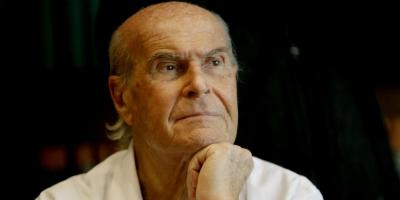Obituary: Umberto Veronesi, a life against cancer

ROME – The oncologist and politician Umberto Veronesi, who dedicated his life to the battle against cancerous tumours, passed away in his home in Milan Tuesday aged 90, surrounded by his wife and children.
Internationally recognised for his work on the prevention and treatment of cancer, specifically breast cancer, Veronesi was founder and president of his own foundation for cancer research and also the Minister of Health under the second government of Giuliano Amato.
“Go forwards, because the world needs science and reason.” These are the words of the great scientist and politician for his foundation in the later period of his 50-year career. The Umberto Veronesi Foundation said of his passing, “We are all profoundly hit by such a painful loss. The professor was never afraid of death, he considered it a natural event of life. From a person so confident in the future, he wanted the Foundation to continue to reach great goals (…) -- maintain research, share scientific culture, promote prevention, improve the quality of life for patients and defend ethics.”
The Foundation concluded, “We shall continue this work, born from a sublime mind, with even better determination. The same determination that the professor was capable of transmitting day after day.”
Condolences and commemorations for Veronesi have been flooding in, as Minister of Health Beatrice Lorenzin tweeted, “Goodbye Umberto Veronesi, great scientist and great man, who had taught women how to defeat and defend themselves from cancer. A hug of great affection to your loved ones.”
Matteo Renzi, Italian Prime Minister, said Veronesi was a “great man of science. I would like you to all remember him with a big applause,” as the room of fellow politicians responded enthusiastically.
Carmine Pinto, president of the Italian Association for Oncology, said, “A great loss for Italian oncology. Veronesi was among the founding fathers of oncology in our country, with a continuous sense of duty for the development of base and clinical research, for the humanization of treatment and care in oncology and, in particular, for the development of surgery and therapy for carcinogens of the breast.”
sw


